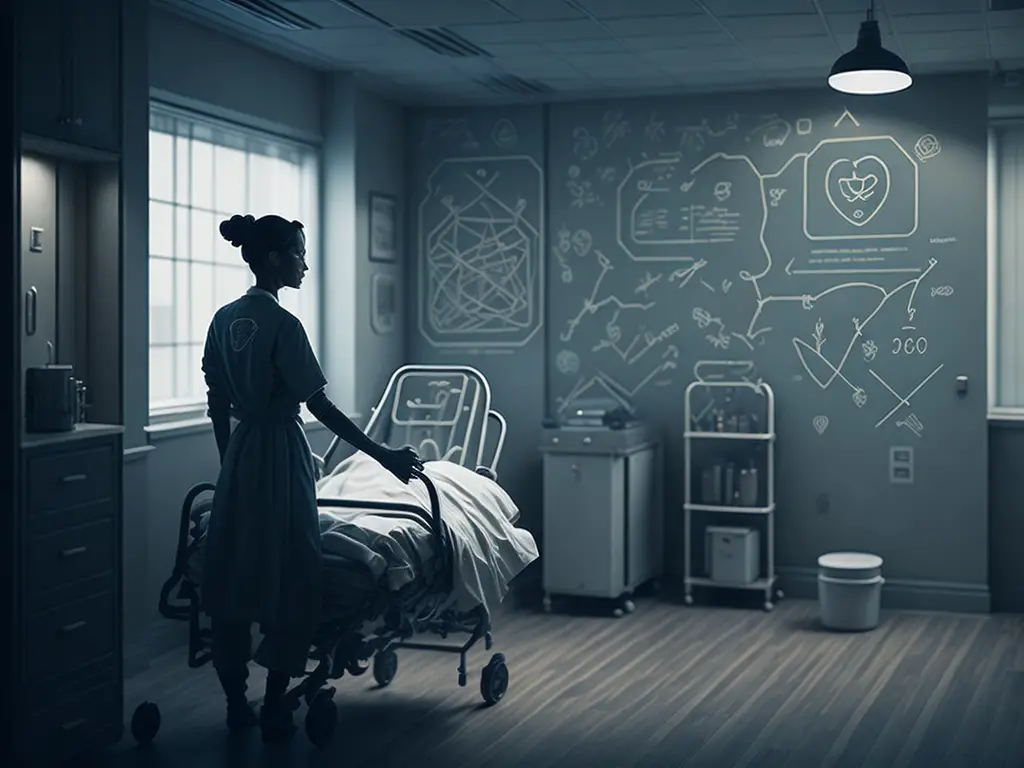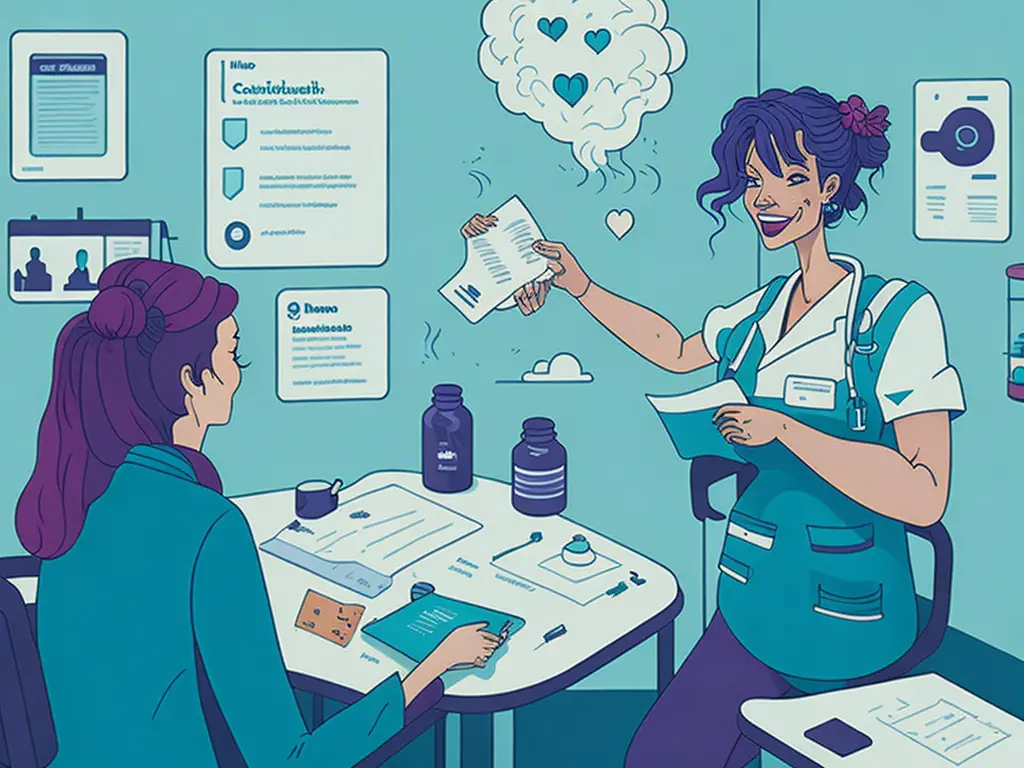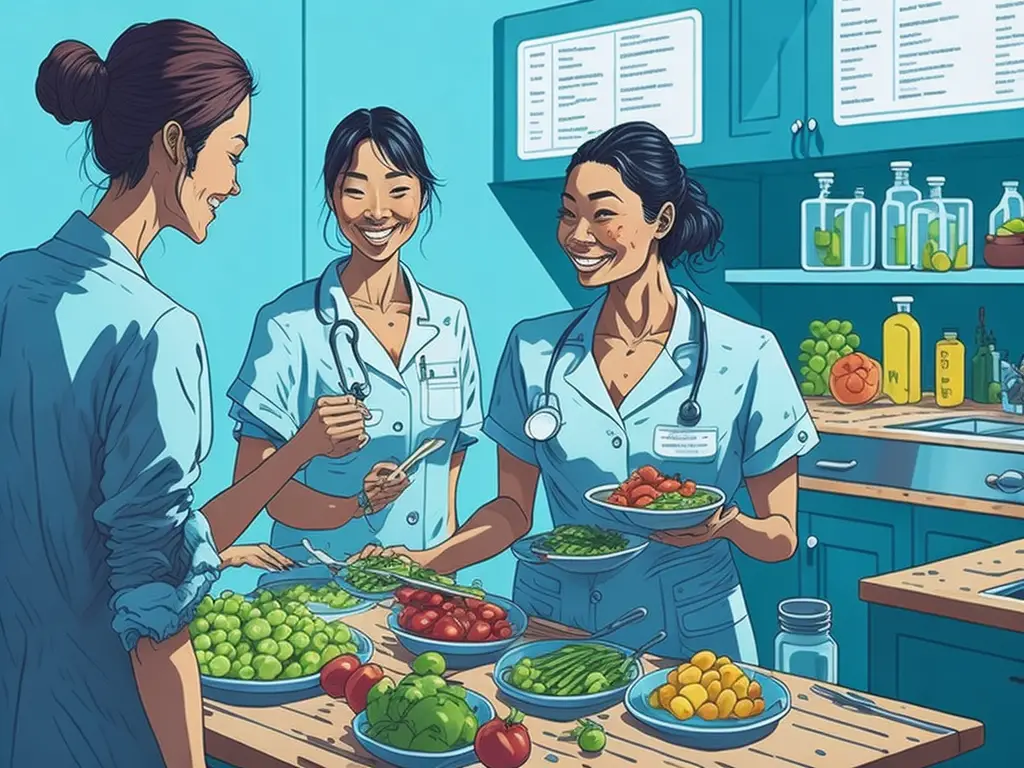Nursing Support for Cancer Patients in Sri Lanka: A Comprehensive Guide

Introduction
We often say, “It’s not the mountain we conquer, but ourselves.” In the arena of healthcare, cancer often appears as that insurmountable mountain. Yet, with every challenge, comes a glimmer of hope. In the world of cancer care, this hope frequently radiates from the compassionate eyes and nurturing touch of nurses. These warriors provide more than medical care—they offer a balm for the soul. This article will offer an in-depth gaze into the universe of nursing support available for cancer patients.
Understanding Cancer and its Implications

To appreciate the essential role of nurses, one must first grasp the multi-faceted impact of cancer. Think of cancer as a hydra, a multi-headed monster; each manifestation has its unique set of challenges. It’s not just a cellular anomaly; its implications radiate across three main domains:
- Physical Impacts: The medical world is ever-evolving, and with this evolution comes a barrage of treatments. Whether it’s the taxing process of chemotherapy or the precision of radiation therapy, side effects are unfortunately a part of the package. Loss of hair, debilitating fatigue, skin issues—each patient’s journey varies, and so do their battles.
- Psychological Impacts: If the body is the battleground, the mind is where strategies are formed. Fear, depression, anxiety—these aren’t just words. For a cancer patient, they’re often daily companions. The uncertainty about the future, worries about family, and the emotional roller-coaster can sometimes be as challenging as the disease itself.
- Social Impacts: A diagnosis often alters how patients see themselves and how society views them. From relationships undergoing strain to work dynamics changing, the socio-cultural footprint of cancer is extensive.
In this whirlwind, nurses emerge as pillars of support, guiding patients with knowledge, empathy, and unwavering dedication.
The Role of a Nurse in Cancer Care
Nurses are the unsung heroes, the bridge between the technical world of medicine and the emotional realm of patient care. Their role transcends administering medication:
- Monitoring and Management: A primary task, but by no means a simple one. From tracking vital signs to observing responses to treatments, their vigilant eyes miss nothing. Their timely interventions can make all the difference.
- Patient Education: Knowledge is power. By enlightening patients about their condition, prospective treatments, and potential side effects, nurses empower them to be active participants in their care journey.
- Emotional Anchor: Beyond the medical paraphernalia, nurses offer a listening ear, a comforting touch, understanding the importance of mental well-being in the healing process.
Key Aspects of Nursing Support

Pain Management
Pain is a frequent intruder in a cancer patient’s journey. However, it’s not an invincible enemy. Armed with advanced pain relief techniques, medications, and holistic approaches, nurses work tirelessly to ensure patients’ comfort. They’re trained to gauge the intensity, understand its source, and employ tailored strategies for relief.
Treatment Side Effects Management
Every treatment, while being a weapon against cancer, unfortunately, has its fallout. Nausea, skin issues, appetite loss, and fatigue are but a few. Nurses, with their vast experience and training, are adept at managing these. They not only administer necessary interventions but also provide tips, tricks, and remedies to make this journey a tad bit easier.
Emotional and Psychological Support
Mental well-being is paramount. Acknowledging this, nurses often wear the hat of counselors. Whether it’s addressing the overwhelming fears, guiding through the maze of emotions, or introducing patients to support groups, they ensure the mind remains as robust as the body.
Nutritional Guidance
With treatments often wreaking havoc on appetites and altering tastes, maintaining nutrition becomes crucial. Nurses guide on what to eat, what to avoid, and how to handle treatment-induced dietary challenges, ensuring the body receives the nourishment it requires.
Rehabilitation and Post-treatment Care
The war against cancer doesn’t end with treatments. Rehabilitation is a vital phase, helping patients reclaim their lives. Nurses assist in physical therapy, provide guidance on resuming daily activities, and ensure a smooth transition from hospital corridors to the comforts of home.
Advanced Nursing Roles in Cancer Care

Nursing in oncology is a vast field, with specialized roles catering to specific needs:
- Nurse Navigators: These are the guiding stars, helping patients navigate the complex maze of cancer care, ensuring appointments, treatments, and procedures are streamlined.
- Oncology Nurse Specialists: With expertise in specific cancer types, they bring a wealth of specialized knowledge, ensuring targeted and effective care.
- Clinical Nurse Specialists: Research is their forte. By staying abreast with the latest in cancer care, they bridge the gap between groundbreaking research and bedside care.
- Palliative Care Nurses: In advanced stages, the focus shifts from cure to comfort. These nurses specialize in ensuring the highest quality of life, focusing on symptom management and emotional support.
The Importance of Continuing Education for Oncology Nurses

The world of medicine is ever-evolving. To provide the best care, nurses continually update their knowledge. This not only enhances their skillset but also ensures patients benefit from the latest advancements. Regular workshops, seminars, and training sessions are essential components of their professional journey.
Resources and Support for Nurses
Empathy, while a strength, can also be draining. Nurses, due to the emotional intensity of their job, are at risk of burnout. Recognizing signs, seeking timely help, engaging in self-care, and leveraging support networks are integral to their well-being.
The Interdisciplinary Approach: Teamwork in Cancer Care
Cancer care is a symphony, with each medical professional playing a vital note. The harmonious collaboration of doctors, therapists, counselors, and nurses ensures a cohesive care plan, offering patients the best chance at recovery.
Patient Stories: Real-life Experiences
Stories humanize the journey. The tales of hope, resilience, challenges, and the bonds forged in adversity showcase the unparalleled role nurses play in a patient’s journey.
Delving Deeper: Pain Management in Cancer Care
Pain can be the most grueling companion for a cancer patient. Yet, for our gallant nurses, it’s just another puzzle to solve. But how do they achieve it?
- Assessment: It begins by understanding. Is the pain sharp, dull, intermittent, or constant? Using pain scales, nurses glean insights into its severity and fluctuations.
- Medications: From over-the-counter analgesics to stronger prescription drugs, nurses administer and monitor medications, ensuring optimal relief without overdosing.
- Non-Pharmacological Interventions: Ever heard of the magic of a warm compress or the soothing power of relaxation techniques? Nurses often incorporate these, realizing that sometimes, simple remedies can be profoundly effective.
- Patient and Family Education: An informed patient is an empowered one. Nurses educate patients and their families about pain, its management, and ways they can assist, fostering a sense of control.
The Intricacies of Treatment Side Effects Management
Imagine waking up, dreading the sun because your skin is sensitive from radiation. Or feeling a constant nauseous churn in your stomach post-chemo. Side effects, though undesirable, are often unavoidable.
- Chemotherapy’s Aftermath: Hair loss, fatigue, and nausea can be harrowing. Nurses often recommend wigs, teach fatigue management strategies, and provide dietary advice to combat these challenges.
- Radiation Woes: Skin problems? Nurses have a plethora of creams, dressings, and strategies up their sleeves.
- Post-Surgical Challenges: Surgery might remove the tumor, but the road to physical recovery can be long. Nurses assist with wound care, mobility exercises, and scar management techniques.
The Sanctum of Emotional and Psychological Support
There’s a saying, “The heaviest burdens aren’t the weights we lift but the thoughts we carry.” The psychological warfare of cancer can be overwhelming.
- Active Listening: Sometimes, all one needs is an attentive ear. Nurses, with their genuine care, offer patients the sanctuary to vent, cry, or just talk.
- Referrals and Support Groups: Knowing you’re not alone can be a game-changer. Nurses connect patients to support groups, where shared experiences forge unbreakable bonds of understanding.
- Relaxation Techniques: Meditation, guided imagery, or deep breathing exercises—nurses introduce patients to these havens of mental peace, helping them navigate the emotional storms.
Nutrition: The Bedrock of Recovery

With a body under siege, every morsel of nutrition counts. But what happens when treatments alter appetites or make every meal taste like cardboard?
- Dietary Plans: Nurses create tailored dietary plans, balancing the needs of the body and the whims of a compromised palate.
- Supplements and Alternatives: When food doesn’t appeal, supplements come to the rescue. Nurses recommend protein powders, vitamins, and energy-boosting supplements, ensuring the body lacks nothing.
- Hydration: Essential yet often overlooked. Nurses monitor hydration levels, ensuring patients consume adequate fluids and teaching them signs of dehydration.
Post-Treatment: The Road Back Home
Finishing treatment doesn’t signal the end. It’s merely a milestone in the long road to recovery, and nurses walk every step of the way with their patients.
- Physical Therapy: Regaining strength and mobility is paramount. Nurses liaise with physical therapists, ensuring exercises are tailored to individual needs.
- Home Care Guidance: From wound dressings to medication schedules, nurses educate patients on the nitty-gritty of home care.
- Follow-Up and Surveillance: Cancer might be gone, but vigilance remains. Nurses schedule follow-ups, ensuring any recurrence is caught in the bud.
Continuing Education: Staying Ahead in the Game
Medicine’s landscape is ever-evolving. For nurses, staying updated isn’t a luxury; it’s a necessity.
- Workshops and Conferences: These platforms offer glimpses into groundbreaking research and novel techniques. Attending these ensures nurses provide care that’s cutting-edge.
- Online Courses: The digital world offers a treasure trove of knowledge. Many nurses enroll in online courses, broadening their horizons from the comfort of their homes.
- Peer Learning: Discussions, case studies, and brainstorming sessions with peers are invaluable. They offer fresh perspectives, challenge thought processes, and lead to comprehensive care strategies.
In Conclusion: The Symphony of Hope
The journey with cancer is like navigating a storm. There are moments of despair, of raging tempests, and seemingly insurmountable waves. But amidst this chaos, nurses stand tall, like unwavering lighthouses. Their knowledge guides, their compassion soothes, and their dedication gives hope.
Every cancer patient’s journey is unique, but with the unwavering support of dedicated nurses, they know they’re never alone. In the vast tapestry of healthcare, nurses shine brilliantly, the unsung heroes weaving threads of hope, care, and recovery.




